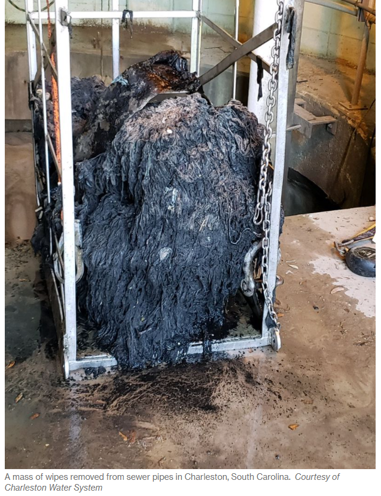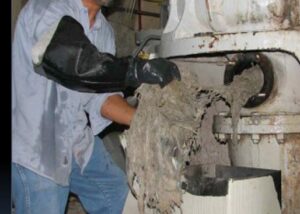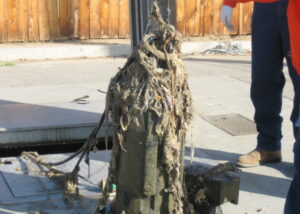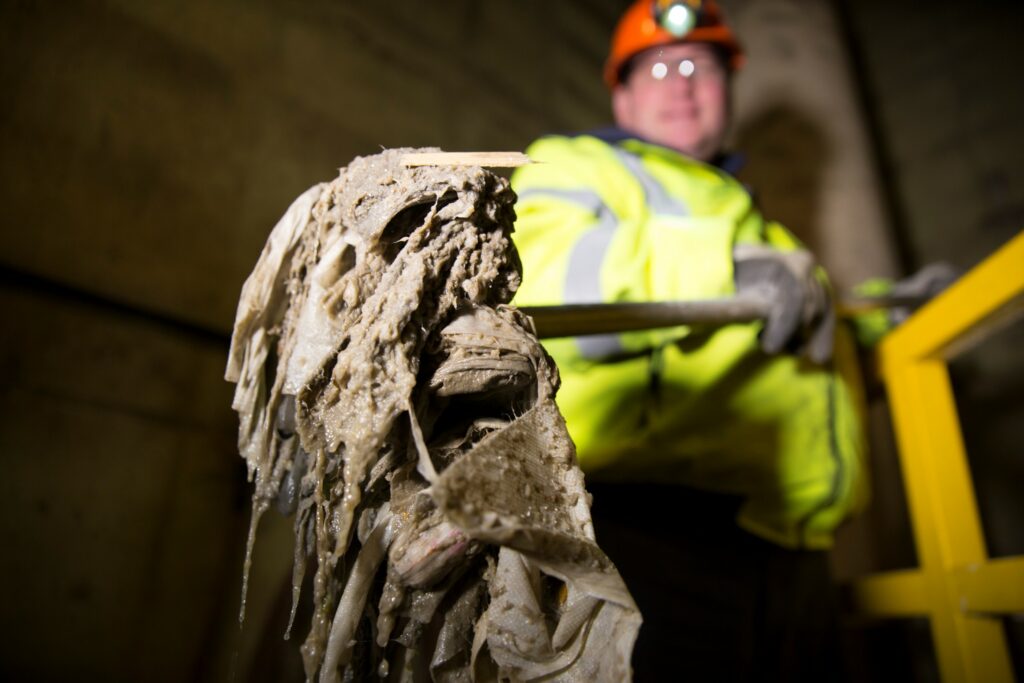We do this every day, multiple times, and it’s often taboo to talk about…using the toilet!
The fact is, most people see it as a necessity and don’t think too long about it – just flush and go. But this can cause a huge problem for residents, businesses, and our wastewater treatment plant because — let’s be honest — we have an obsession with convenience. Toilets are often treated as trash cans for common household items, like:
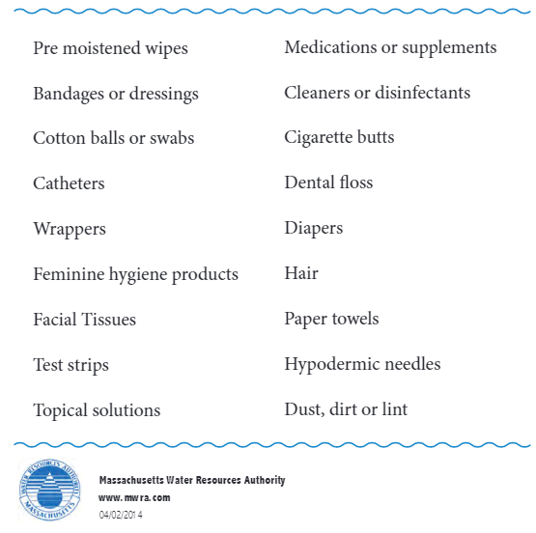
Once you flush it, it’s not gone. It must travel through miles of winding pipes to get to the SESD wastewater treatment plant. On the way, your flush passes barriers like tree roots, built up grease, and all the other things people flush that they shouldn’t. This causes HUGE clogs of wipes and debris in the sewers as well as inside equipment at the treatment plant.
“It’s costing local ratepayers a lot of money for us to continually clear wipes from our equipment, or replace damaged equipment. If residents could just stop flushing wipes and other non-flushables, our plant would operate smoother, our team would be safer, and the environment in this area would be better protected.” — Erik Nowak, Superintendent of Maintenance
Amid the Covid-19 pandemic, Americans are purchasing more wipes than ever, according to a Bloomberg News article published on March 26, 2021. Many residents and businesses in Beverly, Danvers, Marblehead, Peabody, and Salem are contributing to the problem. Our plant regularly experiences damage to pumps, valves, pipes, and other equipment from what our community flushes every day. Hours are spent on de-ragging and repairing where possible, but sometimes the damage is so severe equipment must be entirely replaced.
“We’ve had to replace thousands of dollars worth of equipment over the years, now more than ever, and hundreds of manhours due to people flushing things other than human excreta and toilet paper.” — Richard Delacono, Superintendent of Operations
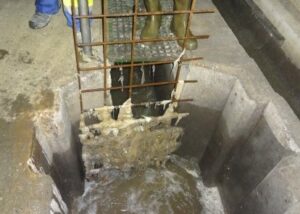
The costly repairs don’t just impact the District and your municipality – residents and businesses can experience these same clogs, and the cost to inspect, clear, and prevent them is steep according to Home Advisor. The Washington Post published an article on April 23, 2021 addressing the issues surrounding the use of wipes, and Sanitary Districts across the country are desperately trying to get their message out to residents. It doesn’t stop here – organizations across the globe are working together to bring awareness to responsible flushing practices and the dangers non-flushables pose to our environment and collection systems.
Even if they easily flush or say “flushable” on the packaging, the reality is wipes do not break down completely or at all leading to expensive, nasty clogs. It can even lead to sewage backing up in your bathroom or basement as Iowa City’s Channel 4 News investigated…


